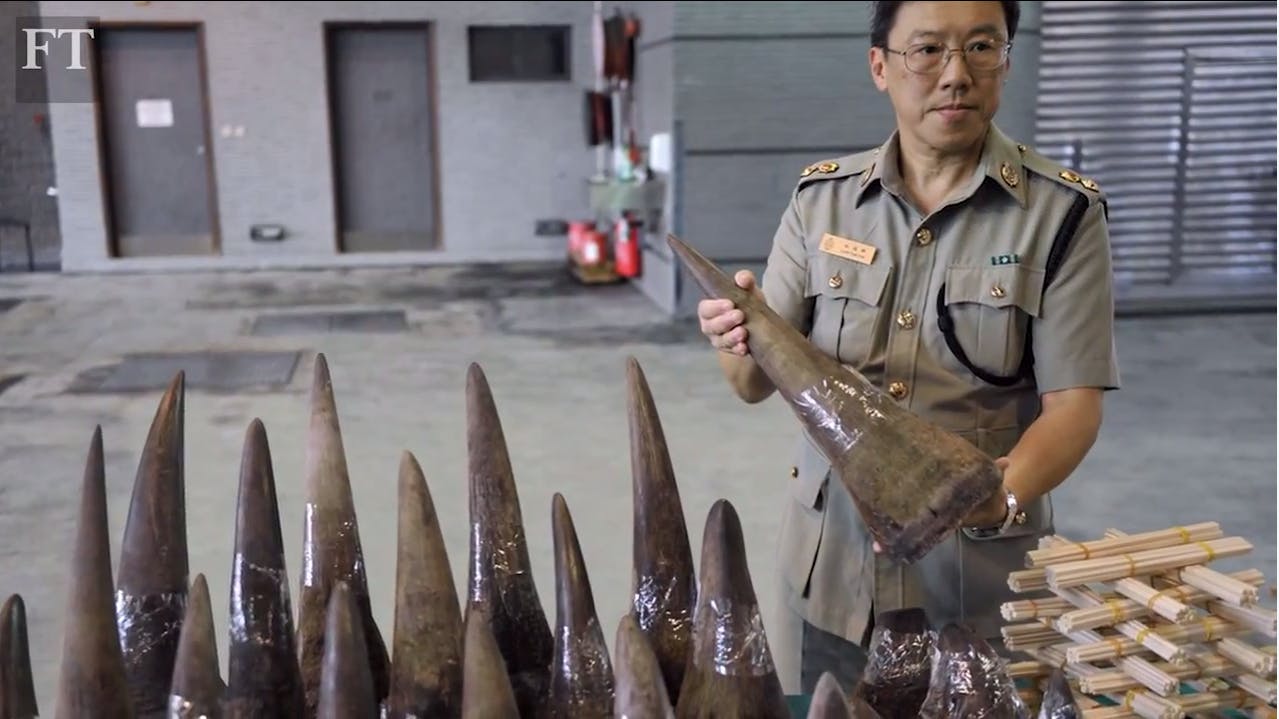
You can watch the full documentary here.
Today the Financial Times publishes its first film, a 20-minute documentary exposing the multi billion-dollar illegal wildlife trade.
In the wake of growing public interest in the global trade, the short film, Big game, big money: Inside the illegal wildlife trade, investigates both the supply and demand sides of the poaching and sale of endangered species. Big game, big money will be accompanied by an op-ed by Prince William, Duke of Cambridge, one of the leaders of the growing campaign against the rapacious criminal networks who run the trade. Written and presented by Alec Russell, the FT’s head of news, and produced by Seb Morton Clark, the film was made on location in South Africa and Vietnam. It is also accompanied by a feature article from Mozambique, the base of most of the poachers.
Focussing on the poaching of rhinoceroses and pangolins (the most illegally traded mammal in the world), it highlights how the trade is fuelled by the rising wealth of East Asian economies and business ties between Asia and Africa. It also explores the difficulty of combating global criminal networks, especially in emerging markets. In exclusive interviews, FT speaks to conservationists, the rangers in South Africa who are fighting desperate young poachers, and the pop star in Vietnam campaigning to stop her country from importing illegal rhino horn.
FT Weekend will also be publishing investigations into rhino poaching and how big money drives the illegal wildlife trade.
The film will have its live premiere at the FT Africa Summit on October 5.
- Ends -
About the Financial Times
The Financial Times, one of the world’s leading business news organisations, is recognised internationally for its authority, integrity and accuracy. Providing essential news, comment, data and analysis for the global business community, the FT has a combined paid print and digital circulation of 747,000. Mobile is an increasingly important channel for the FT, driving almost half of total traffic.